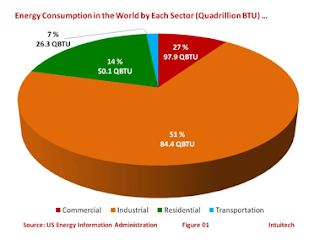Free Software
As a former founder/CEO of a paranoid technology company developing proprietary enterprise software, one would think “free” software and I wouldn’t mix any better than wax and water. After fighting lawsuits to recover my “stolen” software, the idea of ownership is etched into my psyche. Hence the paranoia in my company… NDAs, trade secrets and patent interests. The business models around giving software away have made me confused. Funny though what time spent curled up with freesoftware magazine will do. I have recently become a strong convert and advocate for the free software movement.
I have now seen the light and call it Ubuntu and it fits quite ironically with my previous career. (Of course, I sold the company; but that’s a different blog entry.)
Prior to developing technology I was a social worker developing social programs to help disadvantaged people. I strongly believed in the spirit of community and service to others; and therefore it was odd I developed a proprietary technology for this community marketplace. But this started pre-2000 before the great cataclysm of the tech meltdown when software-for-free wasn’t exactly a recognized concept in the financing circles. I was building software for non-profits on a software for service (ASP) model, which I thought was better than the traditional COTS approach, affordable for the sector and far more egalitarian… it never occurred to me to seek investors who would be happy if I gave the software away.
The non-profits I previously worked for purchased DOS and then Windows. We also purchased office suites from Corel or Microsoft, and expensive products like Accpac. How many non-profits still do this? Many, and with public charities in the US reporting nearly $1.1 trillion in revenues and over $1.0 trillion in total expenses according to the National Center for Charitable Statistics, they are probably spending a chunk of that on software. Maybe it would be better to spend it on direct services and reduce the dependence.
If you are a non-profit today, or just a human being, there is no reason to be buying most of the software you will need. In future entries, I will explore free software for various aspects of non-profit services, including donation tracking, memberships, web site development and maintenance, case management systems, clinical assessments, and electronic health/medical records; but for the desktop I want to talk about the most exciting thing to hit the computer since the Macintosh—Ubuntu. In fact, if Steve Jobs was a social entrepreneur I’m sure he’d have invented Ubuntu!
Ubuntu is a GNU/Linux based operating system for the desktop. I recently dropped Windows and installed Ubuntu on my laptop. That’s right… a more than complete replacement operating system for the desktop for free. I haven’t looked back and every day I relish using the system. Ubuntu is sponsored by Canonical Ltd., a private company funded by South African entrepreneur Mark Shuttleworth who has a mission to bring this software not only to the regular and sophisticated computer user throughout the world, but to those who are more disadvantaged as well. Ubuntu means “humanity towards others” and this of course hits the nerve of my social work paradigm and has overridden my sense of proprietorship.
The Ubuntu Philosophy promotes these core philosophical ideals which I’ve pulled from their website:
- Every computer user should have the freedom to run, copy, distribute, study, share, change and improve their software for any purpose, without paying licensing fees.
- Every computer user should be able to use their software in the language of their choice.
- Every computer user should be given every opportunity to use software, even if they work under a disability.
The Ubuntu philosophy and the philosophy of the non-profit world match!
Non-profits should be embracing this technology and investigating free software systems… many of which come with Ubuntu. I don’t have room to describe how Ubuntu works, I’ll do that in my next entry. Free software for non-profits… there is more than you can imagine and using Ubuntu is “almost” as easy as Windows and in some respects easier; more on that later. For now… install it.

Comments